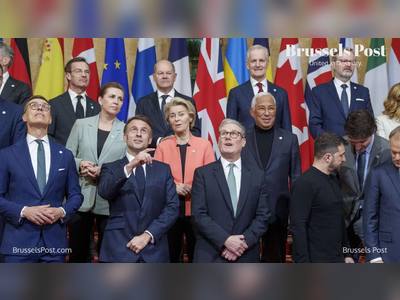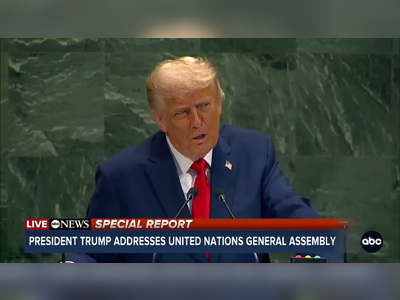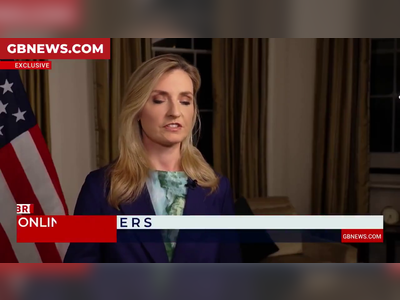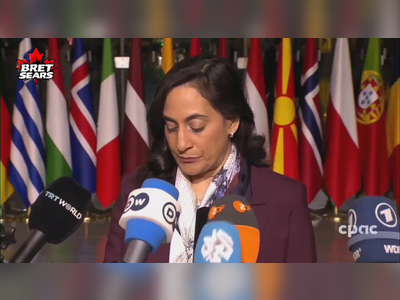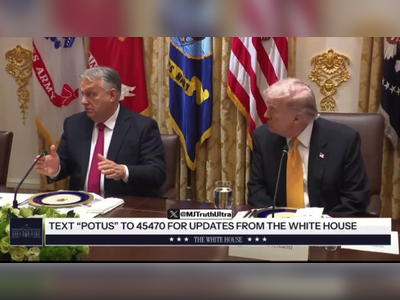World Bank to Support Nuclear Projects for the First Time
The Bank announces a commitment to financing nuclear energy initiatives amid global energy transition efforts.
In a significant policy shift, the World Bank has announced its intention to support nuclear energy projects for the first time, aligning with the growing demand for clean energy sources.
This development comes as governments worldwide seek to reduce carbon emissions and transition to sustainable energy systems to combat climate change.
The World Bank's endorsement of nuclear energy reflects its recognition of the role that reliable, low-carbon energy sources can play in achieving global climate targets.
Nuclear power is considered an essential component of a diversified energy portfolio, particularly in regions where renewable sources such as wind and solar may not be sufficient to meet energy demands.
Several countries have expressed interest in expanding their nuclear capabilities as part of their energy strategies.
Nations like Canada, the United States, France, and several emerging economies are exploring the modernization of existing facilities and the development of advanced nuclear technologies.
The announcement is expected to spur investments in nuclear energy infrastructure and research and development.
The World Bank intends to facilitate financial assistance and technical expertise to enhance the safety and efficiency of nuclear projects.
This assistance aligns with the institution's broader goals of promoting sustainable development and poverty reduction in developing nations.
Environmental groups and other stakeholders are closely watching this initiative, as the nuclear industry has historically faced scrutiny over safety concerns and the management of radioactive waste.
The World Bank's framework for supporting nuclear projects will likely include stringent safety standards and environmental safeguards to address these issues.
This policy change by the World Bank coincides with a renewed public discourse around nuclear energy, particularly following the energy crises exacerbated by geopolitical tensions and the ongoing impacts of the COVID-19 pandemic.
As governments and private sectors seek to secure energy independence and ensure stable energy prices, nuclear energy is increasingly viewed as a viable solution.
The World Bank's decision is a landmark moment in its energy financing strategy and highlights the evolving landscape of global energy investment as countries navigate the complexities of climate change mitigation and energy security.
This development comes as governments worldwide seek to reduce carbon emissions and transition to sustainable energy systems to combat climate change.
The World Bank's endorsement of nuclear energy reflects its recognition of the role that reliable, low-carbon energy sources can play in achieving global climate targets.
Nuclear power is considered an essential component of a diversified energy portfolio, particularly in regions where renewable sources such as wind and solar may not be sufficient to meet energy demands.
Several countries have expressed interest in expanding their nuclear capabilities as part of their energy strategies.
Nations like Canada, the United States, France, and several emerging economies are exploring the modernization of existing facilities and the development of advanced nuclear technologies.
The announcement is expected to spur investments in nuclear energy infrastructure and research and development.
The World Bank intends to facilitate financial assistance and technical expertise to enhance the safety and efficiency of nuclear projects.
This assistance aligns with the institution's broader goals of promoting sustainable development and poverty reduction in developing nations.
Environmental groups and other stakeholders are closely watching this initiative, as the nuclear industry has historically faced scrutiny over safety concerns and the management of radioactive waste.
The World Bank's framework for supporting nuclear projects will likely include stringent safety standards and environmental safeguards to address these issues.
This policy change by the World Bank coincides with a renewed public discourse around nuclear energy, particularly following the energy crises exacerbated by geopolitical tensions and the ongoing impacts of the COVID-19 pandemic.
As governments and private sectors seek to secure energy independence and ensure stable energy prices, nuclear energy is increasingly viewed as a viable solution.
The World Bank's decision is a landmark moment in its energy financing strategy and highlights the evolving landscape of global energy investment as countries navigate the complexities of climate change mitigation and energy security.
AI Disclaimer: An advanced artificial intelligence (AI) system generated the content of this page on its own. This innovative technology conducts extensive research from a variety of reliable sources, performs rigorous fact-checking and verification, cleans up and balances biased or manipulated content, and presents a minimal factual summary that is just enough yet essential for you to function as an informed and educated citizen. Please keep in mind, however, that this system is an evolving technology, and as a result, the article may contain accidental inaccuracies or errors. We urge you to help us improve our site by reporting any inaccuracies you find using the "Contact Us" link at the bottom of this page. Your helpful feedback helps us improve our system and deliver more precise content. When you find an article of interest here, please look for the full and extensive coverage of this topic in traditional news sources, as they are written by professional journalists that we try to support, not replace. We appreciate your understanding and assistance.
